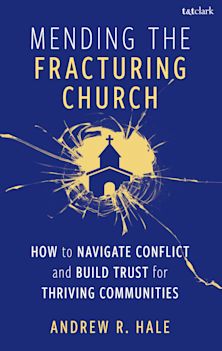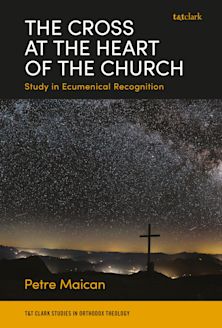- Home
- ACADEMIC
- Theology
- Ecclesiology
- Leibniz on the Nature of the Church
You must sign in to add this item to your wishlist. Please sign in or create an account
Description
Gottfried Wilhelm Leibniz (1646–1716), one of the most prominent figures in both the history of philosophy and the history of mathematics, but also one of the greatest advocates of Christian unity of the early modern period, may just have the solution to divisions within the Church with his unique understanding of the nature of the Church.
Leibniz's unique theological metaphysics and pioneering thought on the centrality of the concept of person, makes his ideas on the nature of the Church particularly promising. The book presents how Leibniz's ideas are formed by history and meetings with extraordinary figures, and how these ideas mature and develop through time into a theological-metaphysics, and much later as a philosophy of personalism that secures Leibniz's place as an early pioneer of the philosophical movement of personalism. Leibniz on the Nature of the Church presents a historical, systematic, and provocative reading of these (until now) overlooked ideas.
Table of Contents
Abbreviations
Introduction
1. Historical Background of Leibniz's Formation
2. Development of Leibniz's Ecclesiology (Early and Middle Years: 1646–1689)
3. Towards a Final Theory on the Church (Later Period: 1690–1716)
4. Recurring Themes of Leibnizian Ecclesiology
Conclusion
Bibliography
Index
Product details
| Published | 18 Sep 2025 |
|---|---|
| Format | Ebook (PDF) |
| Edition | 1st |
| Extent | 384 |
| ISBN | 9798765154618 |
| Imprint | T&T Clark |
| Illustrations | 4 tables |
| Publisher | Bloomsbury Publishing |
About the contributors
Reviews
-
Leibniz sought from one set of principles to account for the new mathematical laws of physics, perception and appetition in animals, mind and will in humans. All would be comprehended under his innovative ideas of substance and force. But equal to universality in its importance for Leibniz was harmonization of oppositions: Plato vs. Aristotle, teleology vs. mechanism, the goodness of God vs. the evil of the world, and, especially, Catholic vs. Protestant. Leibniz's attempt to reconcile the two great religions of Western Christianity, deeply divided in the Thirty Years War, is the focus of Leibniz on the Nature of the Church. It is a unique tour de force of intellectual history, theology and philosophy.
Richard F. Hassing, Research Associate Professor, Catholic University of America, USA

ONLINE RESOURCES
Bloomsbury Collections
This book is available on Bloomsbury Collections where your library has access.


































